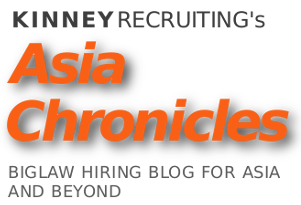In 2009, investment guru Jim Rogers quipped, “If you were smart in 1807 you moved to London, if you were smart in 1907 you moved to New York City, and if you are smart in 2007 you move to Asia.” Asia’s fertile investment potential tends to attract the entrepreneurial, motivated, risk-taking and driven sort – and Mr. Rogers was no exception. Wanting to be in the thick of the economic action, Mr. Rogers decided it was time to find a new neighborhood. He sold his $16M NYC mansion and moved to Singapore in 2007.
He wasn’t the only one. The strength of the Asian economies (not to mention generous expat packages) turned the heads of many New York associates toward Asia. The prospect of working with emerging superpowers like China on one transaction, while breaking ground in a true emerging market like Cambodia on another made my New York deal sheet look like a sensible black dress at Bryan Park’s fashion week. Go east, girlfriend, and grow up with a new country!
So I up and went. Traded Midtown for the Mid-Levels. I also traded a typical NY-style private equity practice for a capital markets practice focusing exclusively on unregistered offerings of foreign issuers. I still had that heavy redbook in my office, but any sections pertaining to requirements of registered issuers were left unthumbed. Reg S and 144A offerings serve as the backbone of many US practice groups and US associates should be prepared to do this kind of work unless they are hired by one of the few firms who hires US associates but does not have a capital markets practice.
If you don’t speak Mandarin you will be grouped into the “everything but China” category. This means working on transactions in India, the Philippines, Malaysia, Indonesia, Cambodia, Thailand, Vietnam, and even Mongolia! Diligence trips will be to Phnom Penh and Bangalore, India; not Denton, TX or Arab, Alabama. Each of these markets has their own quirks and some are more emerging than others. It’s not surprising that in the more emerging parts of Asia there will be a focus on infrastructure. Expect to be working with budget airline and telecom companies. You’ll also likely work with the “tycoon conglomerate company” – a family-run company with its fingers in diverse industries. You will be working on these kinds of deals even if you speak Mandarin although you will get a higher proportion of China work. Japan is not typically considered part of Asia from the perspective of a Hong Kong-based practice.
MAKING HONG KONG HOME
Housing in HK is on par with New York. A 700-square-foot apartment in the Mid-Levels will cost roughly $1900-$2400. Since many firms lump your expat package as part of your salary, you won’t lose it if you don’t use it. Some people prefer to pocket most of it and live in a relatively modest apartment and others decide to splurge a bit – after all, even if you’re spending $5,000 on rent, that’s still only 25% of your salary assuming your firm gives you a “market” expat package (around $62,000/year). Your new employer will place you in a serviced apartment for a month while you look for apartments. Here’s a summary of the different areas in Hong Kong that are popular with the expats:
Soho, Mid-Levels. This is the best place to live if only for its proximity to the escalator. It’s a 20 minute walk from the top of the Mid-Levels Escalator to Central and the escalator runs down the mountain until 10 AM every day. You’ll also find many Western-friendly restaurants, bars and boutiques along the streets which run perpendicular to the escalator (i.e. flat streets).
Wanchai. Cheaper than Soho, this area is now more up-and-coming than Suzy Wong, especially the gentrified Star Street area. Don’t be afraid of its reputation as a historical red-light district. While you’ll find women of negotiable affection in Wanchai, the sex trade is more kitch than sketch. It’s about a 5-minute ride (via cab, bus or subway) to Central.
Kennedy Town. Located on the far west of the island, subway-inaccessible, very local and quite inexpensive (though not grimy), with some new expat-friendly restaurants. Takes about 15-20 minutes to cab into town. Expect property to skyrocket once the subway stop opens up in 2014.
Repulse Bay/Deep Water Bay/Stanley. Great for families, close to the beaches. Big Wave Bay and Shek-O beach have surfing!
PRACTICAL POINTS
* Pollution can be a concern, but the winds blow the muck out of the sky in the summer. I’m enjoying a blue sky day as I write this.
* Domestic helpers are a middle-class expense. Most maids work for HK$60/hr, which is about US$7.50.
* Not knowing Cantonese will be an inconvenience at times, but most signs are in both Chinese and English. The more expat-friendly an area, the less of a language barrier you’ll encounter.
* Supermarkets will stock Western-friendly items. I can get Bolthouse Farms Mango Lemonade at the local Park & Shop. There are even a few large US-style grocery stores and Whole Foods wannabes.
* Humidity in the summer is similar to humidity in the Southeastern U.S. or Texas. Winters can feel colder than expected due to the lack of central heating in most apartments.
I hope this article gave you some color on what it’s like to live and work in Hong Kong, as compared to living and working in New York or another major US market. As always, feel free to contact asia@kinneyrecruiting.com with any questions about the Asia markets. Robert, Robert and I will always be happy to hear from candidates curious about moving to Asia and we will be more than happy to answer any questions you may have.
Related Posts:
- None Found
